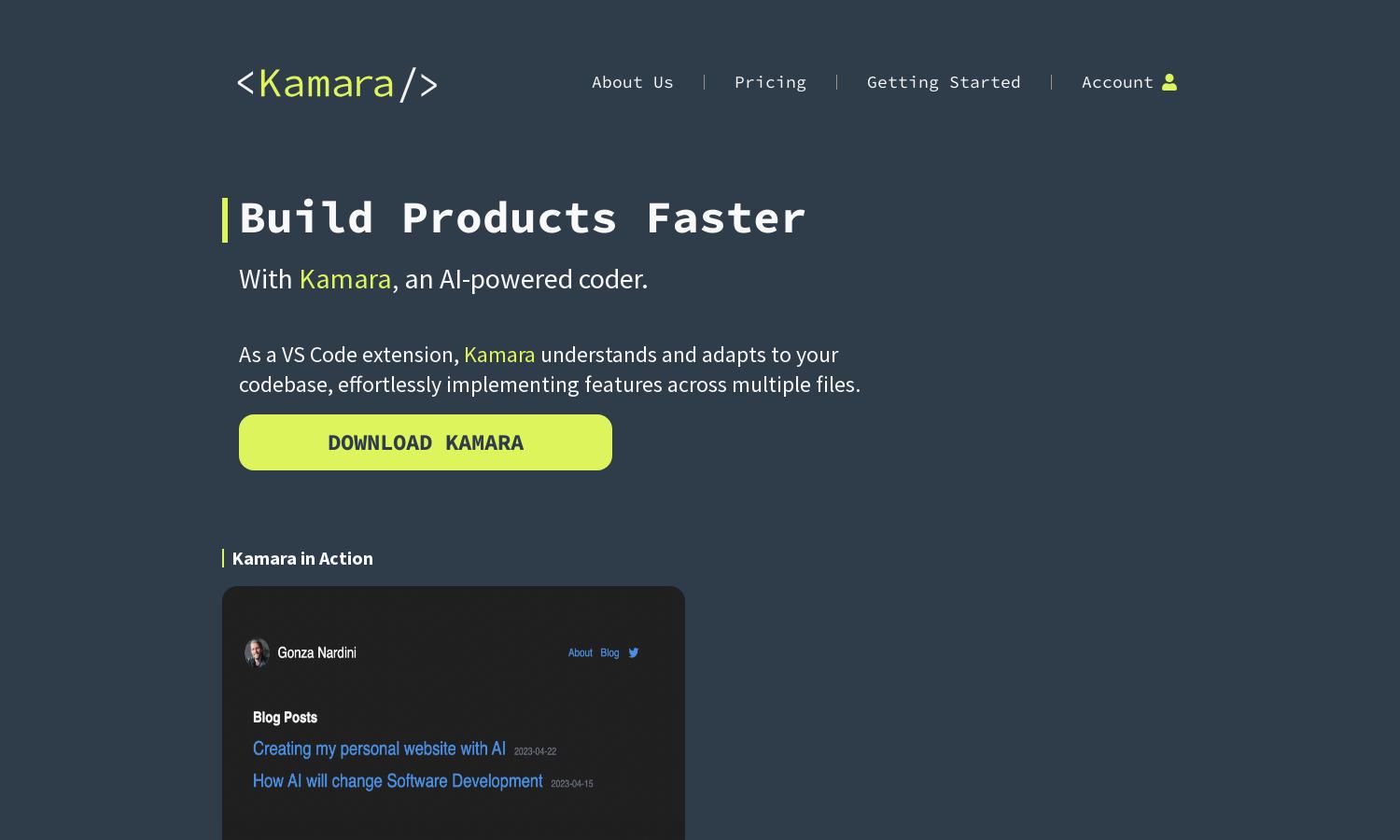Kamara

About Kamara
Kamara is a revolutionary AI Code Writer designed for developers looking to streamline their coding process. With advanced features like deep context access and custom agents, Kamara simplifies coding tasks, enhances productivity, and ensures code quality, making it an essential tool for any programming professional.
Kamara offers flexible pricing plans tailored to various user needs, ensuring all developers can access its features. Each tier offers unique benefits, including priority support and additional customization options. Upgrading unlocks more advanced capabilities, making Kamara an invaluable asset for enhancing coding efficiency.
Kamara features a user-friendly interface that promotes seamless interaction and enhances the coding experience. Its intuitive layout allows users to access essential tools easily, while unique elements cater to individual workflows. This design ensures efficient navigation, making coding a more enjoyable and productive endeavor.
How Kamara works
To use Kamara, users begin by onboarding the application, connecting it to their coding projects and repositories. They can create custom prompts for specific codebase parts. The AI then writes or edits code across multiple files, ensuring consistency with users' coding styles, while enabling task-based iterations for optimal results.
Key Features for Kamara
Deep Context Access
Kamara’s deep context access allows it to view users' files, git history, and database schema. This unique feature enhances the AI's ability to deliver accurate code modifications, tailored to each project’s specific needs and requirements, thus significantly improving the coding workflow.
Custom Agents
Kamara's custom agents enable users to create and store prompts for specific sections of their codebase. This feature personalizes interactions, ensuring that code modifications align closely with a project's unique style and requirements, leading to efficient and consistent programming efforts.
Task-Based Commands
Task-based commands in Kamara allow users to give clear objectives for the AI to execute. This feature facilitates a structured interaction, enabling iterative feedback and adjustments, ultimately leading to a more refined and precise coding outcome tailored to developers' expectations.
You may also like:








